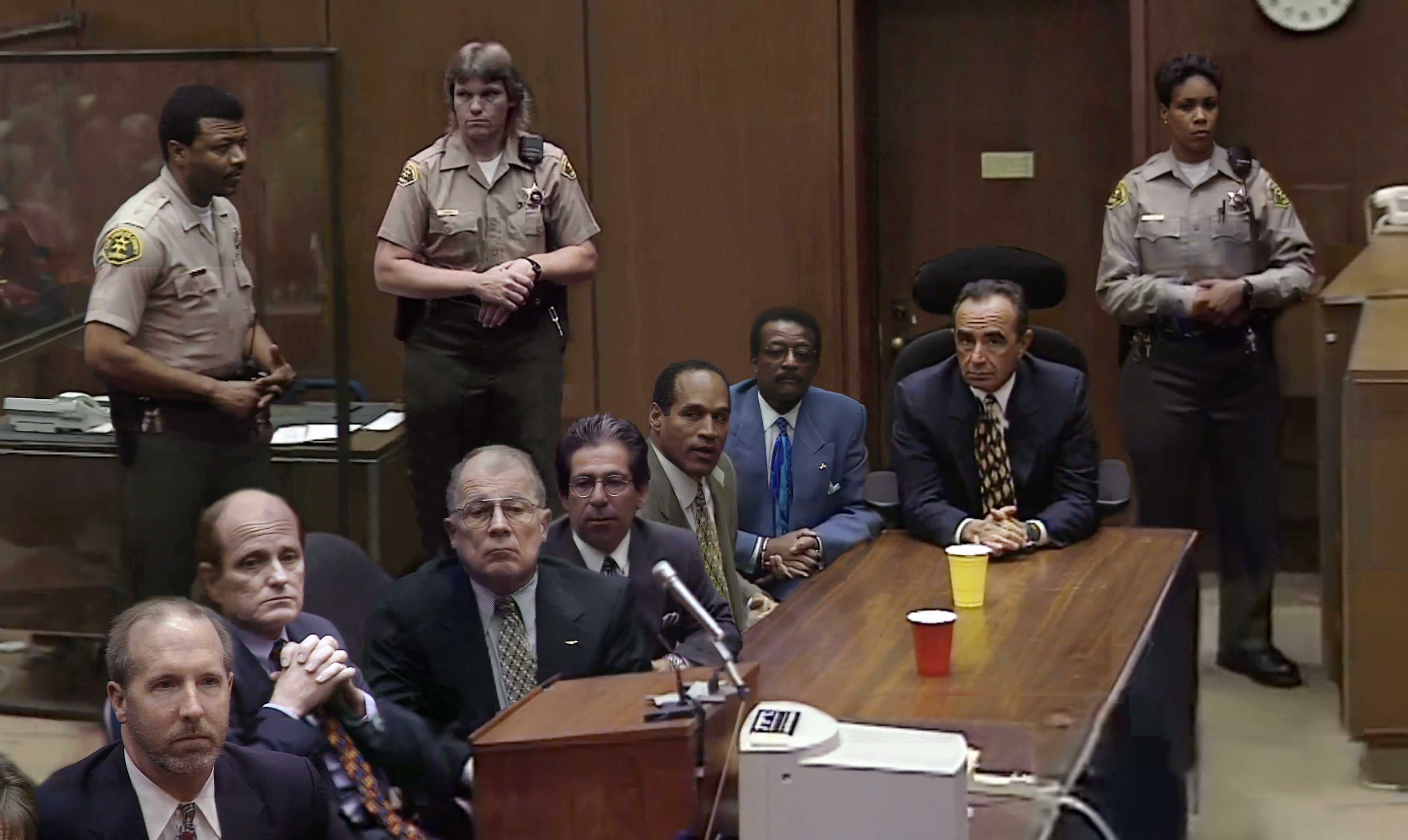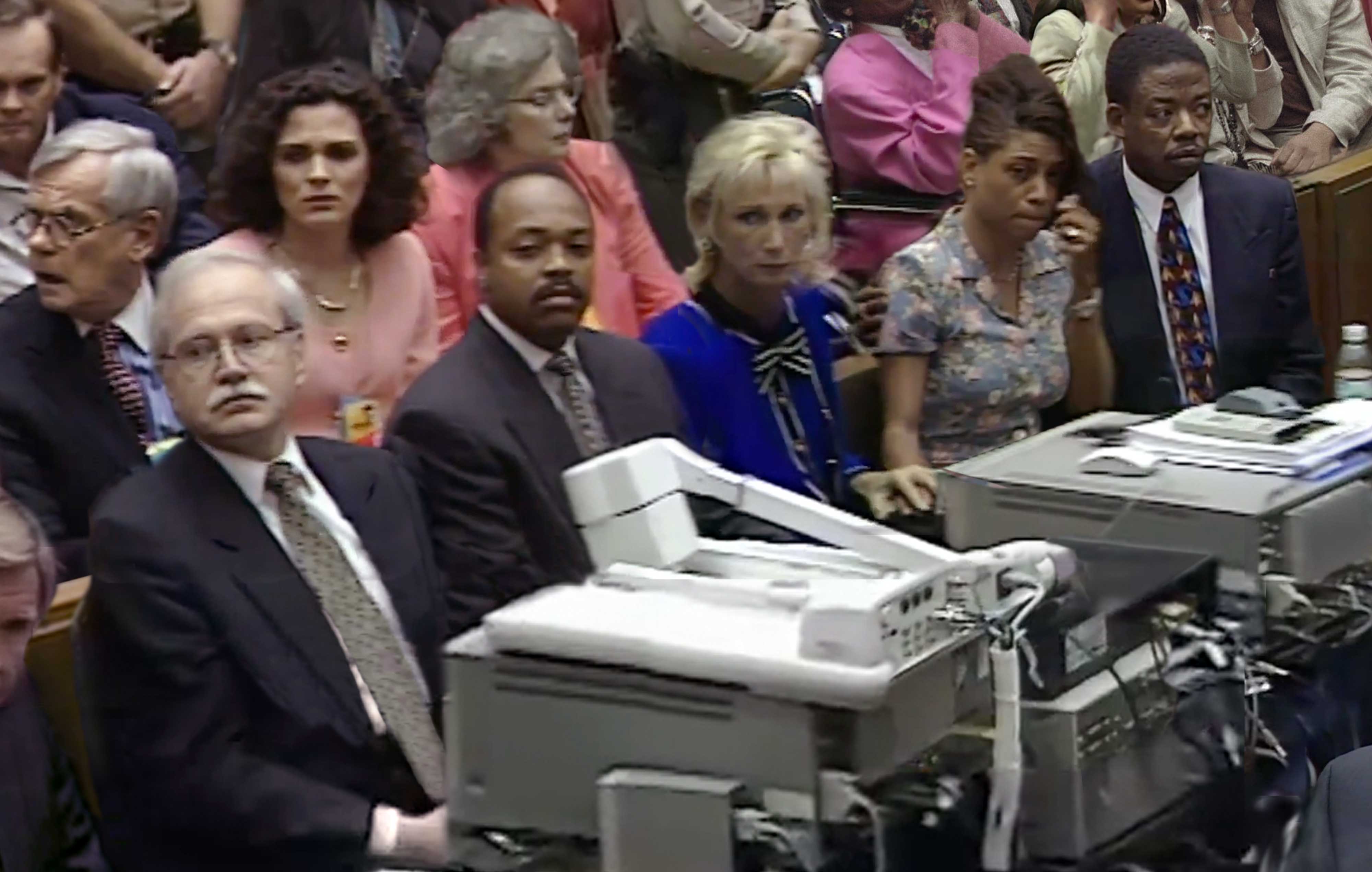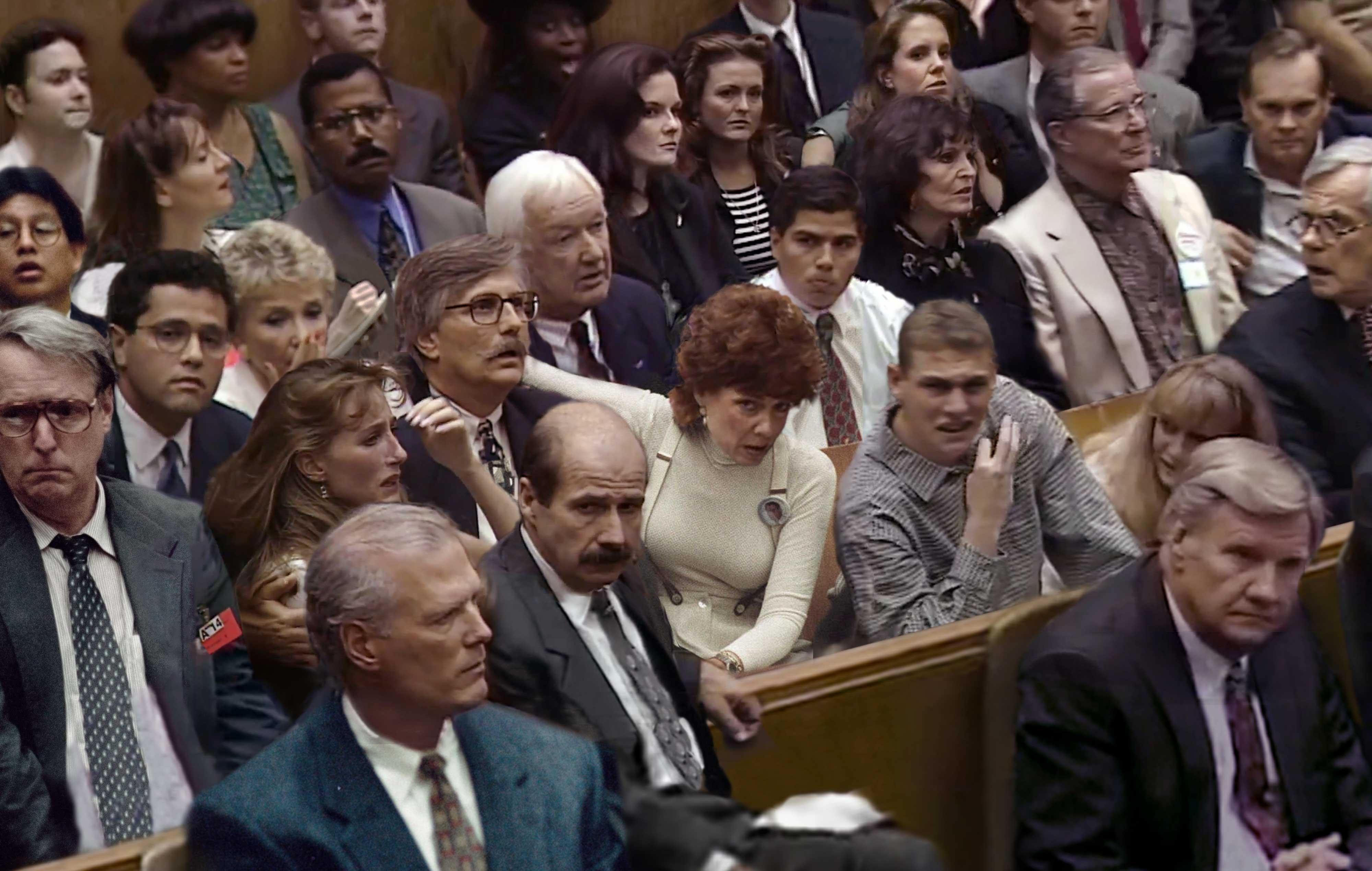On June 23, 1994, the world watched in awe as the OJ Simpson trial unfolded, turning into one of the most talked-about legal cases in history. The OJ Simpson trial verdict date became a topic of global interest, captivating millions who followed every twist and turn. It wasn't just a court case; it was a cultural phenomenon that brought race, celebrity, and the justice system under the spotlight. People were glued to their screens, waiting anxiously for the verdict that would change everything.
The OJ Simpson trial wasn’t your average courtroom drama. This was a case that shook the foundations of the American justice system, raising questions about fairness, bias, and the role of media in high-profile cases. The verdict date was a moment everyone anticipated, a culmination of months of intense legal battles, dramatic testimonies, and explosive evidence.
From the very beginning, the OJ Simpson trial was more than just a murder case. It was a reflection of societal issues, a battleground for racial tensions, and a showcase of how celebrity status can influence public perception. The trial’s verdict date became the climax of this story, a moment when the world would finally know whether OJ Simpson was guilty or not guilty of the murders of Nicole Brown Simpson and Ron Goldman.
- Young Dc Fly The Rising Star In The Music Scene
- Gary Oldman Net Worth The Untold Story Of Hollywoods Most Versatile Actor
Understanding the OJ Simpson Trial Verdict Date
So, when exactly was the OJ Simpson trial verdict date? The verdict was delivered on October 3, 1995, at the Los Angeles County Courthouse. This date marked the end of a trial that lasted for over nine months, involving countless hours of testimony, forensic evidence, and legal arguments. The anticipation leading up to the verdict was palpable, with millions tuning in to watch the live broadcast.
Why Was the Verdict Date So Significant?
The significance of the OJ Simpson trial verdict date cannot be overstated. It wasn’t just about the outcome of the case; it was about the broader implications it had on society. Here are a few reasons why the verdict date was so monumental:
- It represented the culmination of a trial that had been closely followed by millions worldwide.
- The verdict sparked intense debates about race, justice, and the media's role in shaping public opinion.
- It highlighted the flaws and strengths of the American legal system, prompting discussions about reforms and improvements.
The OJ Simpson trial verdict date became a symbol of the complexities surrounding celebrity trials and the public’s relationship with the justice system. People were divided, with some believing in Simpson’s innocence and others convinced of his guilt. The verdict, when it finally came, only intensified these divisions.
- Fast N Furious The Ultimate Guide To The Most Epic Car Racing Franchise Ever
- Did Cher Really Die Debunking The Rumors And Exploring The Truth
Biography of OJ Simpson
Before diving deeper into the trial and its verdict date, let’s take a moment to understand the man at the center of this storm. Orenthal James "OJ" Simpson is a former American football player, broadcaster, and actor. His life before the trial was marked by success and fame, making the accusations against him even more shocking.
Data and Biodata of OJ Simpson
| Full Name | Orenthal James Simpson |
|---|---|
| Date of Birth | July 9, 1947 |
| Place of Birth | San Francisco, California |
| Occupation | Former NFL Player, Broadcaster, Actor |
| Education | USC (University of Southern California) |
OJ Simpson’s career as a football player was illustrious, earning him numerous accolades and a place in the Pro Football Hall of Fame. However, his life took a dramatic turn when he became the prime suspect in the murders of Nicole Brown Simpson and Ron Goldman.
The Key Events Leading to the Verdict Date
The journey to the OJ Simpson trial verdict date was filled with pivotal moments that shaped the case’s outcome. Let’s explore some of the key events that led to this historic day:
The Arrest and Initial Reaction
OJ Simpson was arrested on June 17, 1994, following a dramatic low-speed chase that captivated the nation. The arrest came after the discovery of the bodies of Nicole Brown Simpson and Ron Goldman, who had been brutally murdered. The initial reaction to the arrest was one of disbelief, as many struggled to reconcile the image of Simpson as a beloved sports figure with the allegations against him.
The Defense Team and the "Dream Team"
One of the most talked-about aspects of the trial was Simpson’s defense team, often referred to as the "Dream Team." Comprised of high-profile lawyers like Johnnie Cochran, Robert Shapiro, and F. Lee Bailey, the team employed innovative strategies to challenge the prosecution’s case. Their efforts played a significant role in shaping the trial’s outcome and the eventual verdict date.
The Evidence and Controversies
The evidence presented during the trial was both compelling and controversial. From the infamous "bloody glove" to DNA analysis, the prosecution built a strong case against Simpson. However, the defense successfully raised doubts about the evidence’s integrity, questioning police procedures and potential tampering. These controversies only added to the anticipation surrounding the verdict date.
The Role of Media in the Trial
The media played a crucial role in the OJ Simpson trial, influencing public perception and amplifying the trial’s impact. With 24/7 coverage and endless analysis, the trial became a spectacle that reached far beyond the courtroom. The verdict date was no exception, with media outlets providing live updates and expert commentary as the world awaited the decision.
Impact on Public Opinion
The media’s portrayal of the trial had a profound effect on public opinion. Depending on which news source you followed, you might have had a completely different understanding of the case. This divide highlighted the power of media in shaping narratives and influencing societal views, particularly in high-profile cases like Simpson’s.
Legal Implications of the Verdict Date
The OJ Simpson trial verdict date had far-reaching legal implications, sparking debates about the justice system’s fairness and effectiveness. The verdict itself, which found Simpson not guilty, was met with mixed reactions, reflecting the deep divisions within society. Let’s explore some of the legal aspects surrounding this historic moment:
The Not Guilty Verdict
On October 3, 1995, the jury delivered its verdict: OJ Simpson was not guilty of the murders of Nicole Brown Simpson and Ron Goldman. The decision sent shockwaves through the nation, with celebrations in some communities and outrage in others. The verdict date became a symbol of the complexities surrounding race and justice in America.
Aftermath and Appeals
In the aftermath of the verdict, questions were raised about the trial’s fairness and the jury’s decision-making process. Although Simpson was acquitted in the criminal trial, he faced a civil trial where he was found liable for the wrongful deaths of Nicole Brown Simpson and Ron Goldman. This duality in legal outcomes further complicated public understanding of the case.
Lessons Learned from the OJ Simpson Trial
The OJ Simpson trial and its verdict date offer valuable lessons for society, the legal system, and the media. Reflecting on these lessons can help us better understand the complexities of high-profile cases and the challenges they present:
Understanding Bias in the Justice System
One of the most significant takeaways from the trial is the importance of addressing bias in the justice system. The case highlighted how racial and societal biases can influence legal proceedings and public perception. Recognizing and addressing these biases is crucial for ensuring fairness and justice for all.
The Role of Forensic Evidence
The trial also underscored the importance of forensic evidence in modern legal cases. The use of DNA analysis and other scientific methods played a pivotal role in the prosecution’s case. However, the defense’s ability to challenge the evidence’s integrity demonstrated the need for rigorous standards in collecting and presenting forensic data.
Public Reaction to the Verdict Date
The public reaction to the OJ Simpson trial verdict date was as diverse as the nation itself. While some celebrated the jury’s decision, others were left questioning the justice system’s ability to deliver fair outcomes. Let’s delve into how different groups responded to the verdict:
African American Communities
Many African American communities saw the verdict as a victory against systemic racism and police misconduct. The trial exposed deep-seated issues within law enforcement, and the not guilty verdict was seen as a form of justice in a broader sense.
White Communities
In contrast, many white Americans were shocked and outraged by the verdict. They believed the evidence overwhelmingly pointed to Simpson’s guilt and questioned the jury’s ability to reach an objective decision. This divide highlighted the racial tensions that existed within society and continue to persist today.
Legacy of the OJ Simpson Trial
The legacy of the OJ Simpson trial extends far beyond the verdict date, shaping how we view celebrity trials, media coverage, and the justice system. The trial’s impact can still be felt in modern legal cases, where public opinion and media influence often play significant roles. Let’s explore the lasting effects of this historic case:
Cultural Impact
The OJ Simpson trial became a cultural touchstone, referenced in countless films, books, and documentaries. It remains a subject of fascination for many, serving as a cautionary tale about the intersection of celebrity, race, and justice. The trial’s legacy continues to influence how we perceive high-profile cases and the media’s role in shaping public opinion.
Legal Reforms
The trial also prompted discussions about legal reforms, particularly in areas such as jury selection, evidence handling, and media coverage of trials. While progress has been made, the case serves as a reminder of the ongoing need for improvements in the justice system.
Conclusion
In conclusion, the OJ Simpson trial verdict date remains one of the most significant moments in legal history. It was a case that captivated the world, raising important questions about race, justice, and the media’s role in high-profile trials. The verdict, though controversial, sparked crucial conversations that continue to shape our understanding of these issues today.
As you reflect on the OJ Simpson trial, consider the lessons it offers and the challenges it presents. Share your thoughts in the comments below, and don’t forget to explore other articles on our site for more in-depth analysis of similar topics. The conversation doesn’t end here—let’s keep the dialogue going!
Table of Contents
- Understanding the OJ Simpson Trial Verdict Date
- Biography of OJ Simpson
- The Key Events Leading to the Verdict Date
- The Role of Media in the Trial
- Legal Implications of the Verdict Date
- Lessons Learned from the OJ Simpson Trial
- Public Reaction to the Verdict Date
- Legacy of the OJ Simpson Trial
- Cultural Impact
- Conclusion
- Meat Loaf The Iconic Singer Who Shaped Rock History
- Did Cher Really Die Debunking The Rumors And Exploring The Truth


